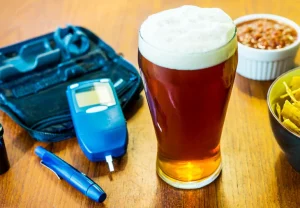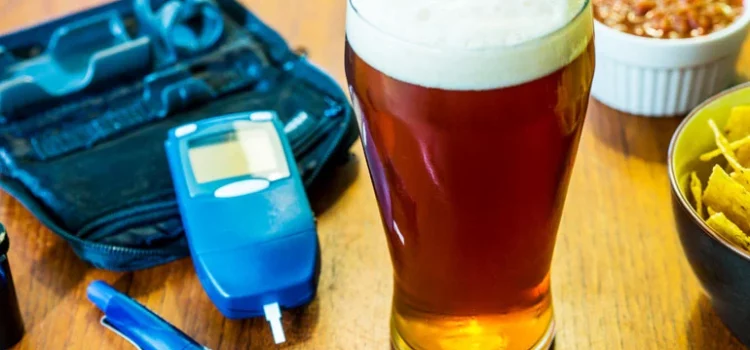
Understanding the effects of alcohol on blood sugar is essential for individuals with diabetes. In this article, we’ll address the impact of alcohol on blood sugar levels and provide insights on responsible alcohol consumption to help those with diabetes make informed choices.
1. Blood Sugar Fluctuations:
Complex Interaction:
Alcohol can affect blood sugar levels in complex ways. While some types of alcohol can lead to immediate drops in blood sugar, others may cause delayed spikes.

2. Hypoglycemia Risk:
Low Blood Sugar:
Moderate alcohol consumption can lead to hypoglycemia (low blood sugar) in some individuals. It’s crucial to be aware of this risk and take precautions.
3. Carbohydrates and Alcohol:
Balancing Act:
Alcoholic beverages may contain carbohydrates, which can raise blood sugar levels. It’s important to account for these carbs in your overall meal plan.
4. Timing Matters:
Plan Ahead:
Avoid drinking on an empty stomach. Consuming alcohol with a meal that includes protein, fiber, and healthy fats can help stabilize blood sugar levels.
5. Monitor Blood Sugar:
Real-Time Awareness:
Frequent blood sugar monitoring is essential when consuming alcohol. This allows you to adjust your treatment plan and make informed decisions.
6. Responsible Drinking:
Moderation is Key:
Responsible alcohol consumption is the cornerstone of diabetes management. Limit the quantity of alcohol you consume, following recommended guidelines.
7. Choose Wisely:
Select Lower-Sugar Options:
Opt for drinks with fewer carbohydrates and added sugars. Dry wines, light beers, and spirits with sugar-free mixers are better choices.
8. Stay Hydrated:
Water is Essential:
Dehydration is a risk when consuming alcohol. Stay well-hydrated by drinking plenty of water alongside your alcoholic beverages.
9. Know Your Limits:
Personal Tolerance:
Understand your own tolerance for alcohol and how it affects your blood sugar. Adjust your intake accordingly.
10. Medication Interaction:
Consult Your Healthcare Provider:
Certain diabetes medications may interact with alcohol. Consult your healthcare provider to understand how alcohol may affect your treatment.

Conclusion: Informed Decision-Making
Alcohol and diabetes can coexist with careful planning and moderation. Understanding the effects of alcohol on blood sugar and practicing responsible consumption can help individuals with diabetes make informed choices while enjoying an occasional drink. Prioritizing your health and well-being is essential in managing diabetes alongside alcohol consumption.










